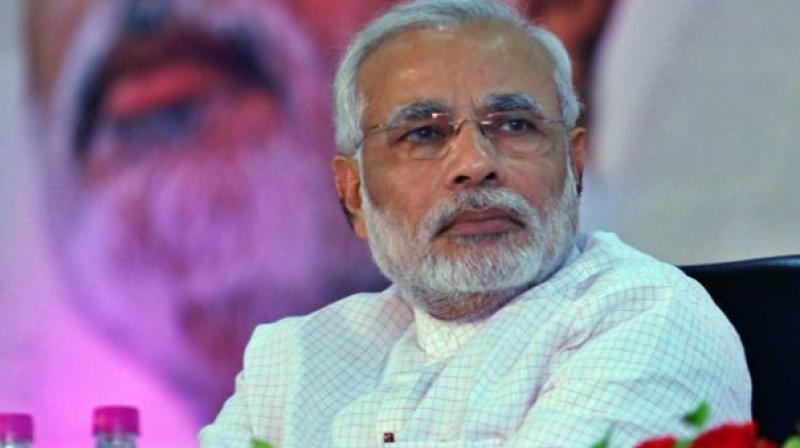Supreme Court relief to Narendra Modi on Sahara payoffs
Apex court finds case filed by Common Cause is based on loose sheets and merit-less.

New Delhi: In a huge relief to Prime Minister Narendra Modi, the Supreme Court refused on Wednesday to order a probe into politically sensitive allegations that he — among other leaders — accepted kickbacks from Sahara and Birla groups when he was Gujarat’s Chief Minister.
The court dismissed a petition filed by an NGO for a court-monitored SIT (special investigation team) probe into bribery allegations based on documents seized during income-tax (I-T) raids on the two business houses.
Democracy can’t survive and constitutional functionaries cannot function independently if a probe is ordered on “flimsy” grounds, the court said.
The decision also deals a blow to the Opposition, which had latched on to the case to target the PM ahead of the Assembly elections in five states in February-March.
It said the case based on “random materials” like loose sheets, papers and e-mail printouts was “merit-less” having “no evidentiary” value.
Congress vice-president Rahul Gandhi and AAP chief Arvind Kejriwal had repeatedly cited the papers to attack Mr Modi, sparking a huge controversy after the Centre’s demonetisation move late last year. The court said the materials were “inadmissible” to order FIRs and investigation, more so against the high constitutional functionaries, whose names were mentioned in the documents.
Cogent, reliable evidence must: SC
The bench said that the income-tax settlement commission had also prima facie found that materials recovered from Sahara group were fabricated.
“Sahara diaries” — a collection of papers and computer printouts found during raids on Sahara offices in 2014 — reportedly carried names of politicians and amounts paid to them as bribe. The list also includes Congress leader Sheila Dikshit’s name.
A new bench of justices Arun Mishra and Amitava Roy said “courts have to be on guard” while dealing with matters demanding probe against high functionaries as the case was devoid of any “cogent” material or “independent evidence corroborating materials” to order investigation.
The bench was constituted as Prashant Bhushan, lawyer for NGO Common Cause, had sought recusal of the then Chief Justice of India-designate, Justice J.S. Khehar, on the ground that his file for elevation as CJI was pending with the government headed by PM Modi.
“There must be some cogent, reliable and admissible evidence. Otherwise the process of law can be abused to achieve ulterior goals,” the court said.
Dissatisfied with loose sheets, which were claimed to be part of diary entries of Sahara and Birla groups, containing entries like “Gujarat CM” and other politicians, the bench said materials placed on record by the NGO were not maintained by the two business houses in their regular course of business.
Earlier A-G Mukul Rohatgi, the government’s top law officer, said that no probe could be ordered on the basis of mere “loose papers” and irrelevant materials.

